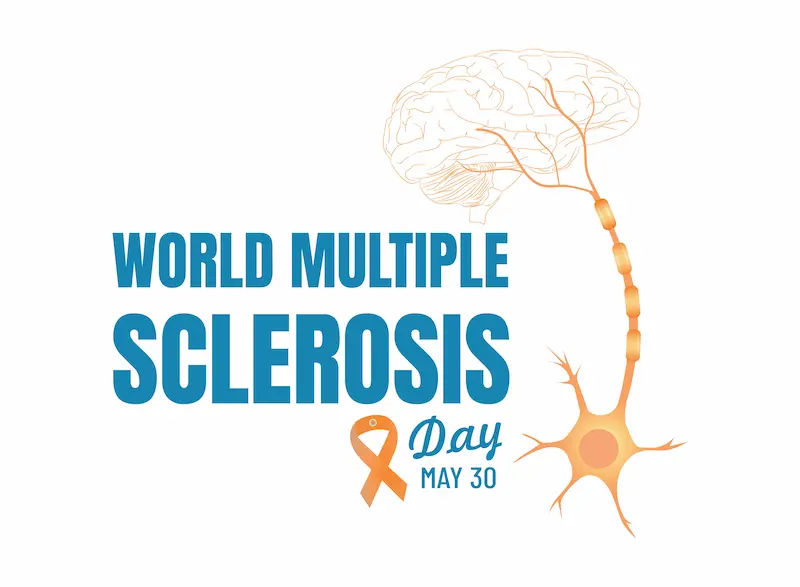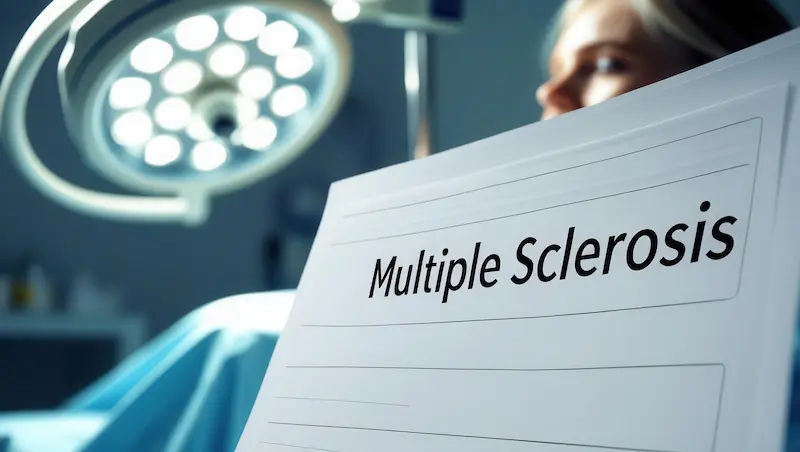Guide to How Find Neurologist When Suffering Multiple Sclerosis
Learn how to find the right neurologist for Multiple Sclerosis (MS). Discover key qualities, practical steps, and questions to ask to ensure expert care and a trusted long-term partnership.


Introduction
Receiving a diagnosis of multiple sclerosis (MS) can feel overwhelming, but one of the most empowering steps you can take is to find a neurologist who is the right partner for your journey. This isn't just about finding any doctor; it's about finding a specialist who understands the complexities of MS and with whom you can build a trusting, long-term relationship. The right neurologist will not only manage your treatment but will also listen to your concerns, explain options clearly, and work with you to create a personalised care plan that fits your life.
This guide is designed to demystify the process. We will walk you through why specialisation matters, the essential qualities to look for, and practical steps to locate and evaluate potential neurologists. From preparing for your first consultation to knowing when it might be time for a second opinion, we’ve got you covered. Let’s navigate this important decision together, ensuring you feel confident and supported in choosing the healthcare professional who will guide your MS management.
Why Finding the Right MS Neurologist is Crucial
Multiple sclerosis is a chronic, unpredictable disease of the central nervous system. Its management requires a nuanced approach that goes beyond general neurological care. A neurologist who specialises in MS brings a depth of experience with the latest disease-modifying therapies (DMTs), a keen understanding of subtle symptom changes, and access to cutting-edge clinical trials. This expertise can directly impact your quality of life and long-term health outcomes.
The Difference Between a General Neurologist and an MS Specialist
While any board-certified neurologist can treat MS, an MS specialist focuses primarily on demyelinating diseases. Think of it like the difference between a general practitioner and a cardiologist for a heart condition. The specialist sees a high volume of MS patients, which means they are more likely to:
- Recognise atypical presentations of the disease.
- Be aware of the latest research and treatment protocols.
- Have experience managing complex medication regimens and their side effects.
- Work within a network of other specialists like physical therapists, urologists, and neuro-ophthalmologists who are familiar with MS.
The Long-Term Benefits of a Strong Patient-Doctor Partnership
MS is a marathon, not a sprint. A strong, collaborative relationship with your neurologist is foundational. This
partnership ensures open communication, allowing you to discuss symptoms without hesitation and actively participate in decisions about your care. When you feel heard and respected, it reduces anxiety and leads to better adherence to treatment plans, ultimately contributing to more stable disease management.
Consult a Neurologist for the best advice
Key Qualities to Look for in an MS Neurologist
Knowing what to look for can transform your search from a guessing game into a targeted mission. Beyond credentials, focus on these essential qualities.
Board Certification and Specialised MS Expertise
First and foremost, verify that the neurologist is board-certified. Then, dig deeper. Do they list MS or neuroimmunology as a specialty on their practice website or hospital profile? Are they affiliated with a comprehensive care centre or a recognised MS treatment centre? These affiliations often indicate a commitment to a higher standard of multidisciplinary care. Finding a neurologist specialising in multiple sclerosis with these credentials is a strong starting point.
Excellent Communication and a Collaborative Approach
Your neurologist should be an excellent communicator. They should explain complex medical information in a way you can understand, without rushing you. Do they welcome your questions? Do they discuss treatment options as a collaboration, weighing your preferences and lifestyle? A good sign is a doctor who says, "Here are the options, and here are the pros and cons of each. What are your thoughts?"
Accessibility and Connection to a Multidisciplinary Team
Consider the practicalities. How easy is it to get an appointment? What is the protocol for urgent questions or managing a relapse? A well-organised practice will have a nurse line or a portal for non-urgent messages. Furthermore, the best MS care often involves a team. Inquire if the neurologist works closely with physiatrists, pain specialists, and mental health professionals. This integrated approach is crucial for comprehensive symptom management.
Step-by-Step: How to Find a Neurologist Specialising in MS
Now for the actionable steps. Use a multi-pronged approach to create a list of potential candidates.
Start with the National MS Society and Other Reputable Organisations
The National Multiple Sclerosis Society (NMSS) in the US offers a free, highly reliable online tool to find a neurologist who is an MS-certified specialist. This directory is an excellent resource because it vets the providers listed. Similar organisations in other countries, like the MS Society in the UK, offer equivalent services.
Leverage Hospital and Academic Medical Centre Directories
Major academic medical centres and large hospital networks are often at the forefront of MS research. Search the websites of renowned hospitals near you (e.g., Cleveland Clinic, Johns Hopkins, Mayo Clinic) for their neurology departments and look for physicians whose clinical interests include MS or neuroimmunology. These centres are also more likely to have MS treatment centre programs.
Tap into Your Personal Network and Read Patient Reviews
While respecting privacy, don’t underestimate the power of your network. Ask your primary care physician for a referral. If you feel comfortable, inquire within local MS support groups—first-hand patient experiences are invaluable. Online review platforms like Healthgrades can offer insights, but take them with a grain of salt; look for patterns in feedback rather than individual reviews.
Preparing for Your First Neurology Consultation
Your first appointment is an interview for both you and the doctor. Being prepared ensures you gather all the information you need to make an informed decision.
What Medical Records and Information to Bring
To make the most of your time, organise and bring:
- A list of your current symptoms and their timeline.
- Copies of MRI or other imaging reports on a CD.
- A list of all medications and supplements you are taking.
- Contact information for your primary care physician and other specialists.
- Your insurance information.
Essential Questions to Ask Your Potential Neurologist
Come with a written list of questions. This helps if you feel nervous. Key questions include:
- "What percentage of your practice is dedicated to MS?"
- "What is your philosophy on treating MS?"
- "How do you typically decide on a starting disease-modifying therapy (DMT)?"
- "What is the best way to contact you or your team if I have questions or a relapse?"
- "Do you work with a multidisciplinary team?"
Evaluating the Fit: Your First Appointment and Beyond
After the appointment, reflect on the experience. Did you feel comfortable? Was the doctor patient and attentive?
Red Flags vs. Green Flags in a Neurologist
- Red Flags: The doctor seems rushed, dismisses your questions, uses overly complex jargon without explanation, or insists on only one treatment path without discussion.
- Green Flags: The doctor listens actively, explains things clearly, involves you in decision-making, and acknowledges the emotional aspects of living with MS.
When to Consider Seeking a Second Opinion
Seeking a second opinion is a standard and encouraged practice in medicine, especially for a chronic condition like MS. It is particularly advisable if you feel your concerns are not being heard, if your disease is progressing rapidly on your current treatment, or if you are considering a high-risk therapy. A good neurologist will not be offended by this and may even be able to recommend a colleague. If your symptoms are changing or you're unsure about your diagnosis, consulting a neurologist online with Apollo24|7 can be a convenient first step to discuss your concerns and get guidance on the next steps.
Conclusion
Finding the right neurologist is one of the most significant actions you can take to proactively manage your multiple sclerosis. It’s a process that requires research, preparation, and self-advocacy, but the payoff—a trusted medical partner for the years ahead—is immeasurable. Remember, you are not just looking for a doctor who treats a disease; you are seeking a collaborator who will support you in living your fullest life with MS.
This journey is unique to you, and it’s okay to take your time to find the perfect fit. Use the strategies outlined here to create a shortlist, ask the right questions, and ultimately choose a neurologist who aligns with your needs and values. Your health is your priority, and having a specialist you trust empowers you to face the future with confidence and clarity. If you are experiencing new or worsening neurological symptoms, booking a physical visit to a neurologist with Apollo24|7 is a straightforward way to begin this important process.
Consult a Neurologist for the best advice
Consult a Neurologist for the best advice

Dr. Uddalak Chakraborty
Neurologist
8 Years • MBBS,MD(GENL. MED.),DM(NEUROLOGY)
Kolkata
VDC Clinic, Kolkata
(25+ Patients)

Dr. Uddalak Chakraborty
Neurologist
8 Years • MBBS, MD(GENL.MED.),DM(NEUROLOGY)
Kolkata
MCR SUPER SPECIALITY POLY CLINIC & PATHOLOGY, Kolkata

Dr. Ganeshgouda Majigoudra
Neurologist
10 Years • MBBS, MD ( GENERAL MEDICINE) DM (NEUROLOGY)
Bengaluru
Apollo Clinic, JP nagar, Bengaluru

Dr. E Prabhakar Sastry
General Physician/ Internal Medicine Specialist
40 Years • MD(Internal Medicine)
Manikonda Jagir
Apollo Clinic, Manikonda, Manikonda Jagir
(175+ Patients)

Dr. Avinash Goswami
Neurologist
11 Years • MBBS, DNB (Medicine), Dr.NB (Neurology), MNAMS
Delhi
Apollo Hospitals Indraprastha, Delhi
Consult a Neurologist for the best advice

Dr. Uddalak Chakraborty
Neurologist
8 Years • MBBS,MD(GENL. MED.),DM(NEUROLOGY)
Kolkata
VDC Clinic, Kolkata
(25+ Patients)

Dr. Uddalak Chakraborty
Neurologist
8 Years • MBBS, MD(GENL.MED.),DM(NEUROLOGY)
Kolkata
MCR SUPER SPECIALITY POLY CLINIC & PATHOLOGY, Kolkata

Dr. Ganeshgouda Majigoudra
Neurologist
10 Years • MBBS, MD ( GENERAL MEDICINE) DM (NEUROLOGY)
Bengaluru
Apollo Clinic, JP nagar, Bengaluru

Dr. E Prabhakar Sastry
General Physician/ Internal Medicine Specialist
40 Years • MD(Internal Medicine)
Manikonda Jagir
Apollo Clinic, Manikonda, Manikonda Jagir
(175+ Patients)

Dr. Avinash Goswami
Neurologist
11 Years • MBBS, DNB (Medicine), Dr.NB (Neurology), MNAMS
Delhi
Apollo Hospitals Indraprastha, Delhi
More articles from Multiple Sclerosis
Frequently Asked Questions
1. What is the difference between a neurologist and a neuroimmunologist?
A neurologist treats disorders of the nervous system. A neuroimmunologist is a neurologist with additional, specialised training in diseases where the immune system attacks the nervous system, like MS. They are often considered top-tier MS specialists.
2. How can I verify a neurologist's credentials and specialisation in MS?
You can verify board certification through the American Board of Psychiatry and Neurology (ABPN) website. For specialisation, check their profile on their hospital's website or use the National MS Society's provider directory, which lists vetted specialists.
3. Should I choose a neurologist based solely at a major academic hospital?
Not necessarily. While academic centres offer access to research, a community-based MS specialist affiliated with a good local hospital can provide excellent, more accessible care. The key is the doctor's specific experience with MS and the quality of the relationship.
4. What if the best MS specialist for me is far away?
Many people use a 'hub-and-spoke' model. They see a far-away specialist once or twice a year for major decisions and have a local general neurologist handle routine monitoring and prescriptions, in collaboration with the specialist.
5. Is it too late to change neurologists if I'm not happy with my current one?
It is never too late. Your healthcare is paramount. If you feel your current neurologist isn't a good fit, it is perfectly reasonable and within your rights to seek care elsewhere. A smooth transition of medical records is a standard procedure.




